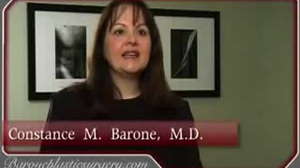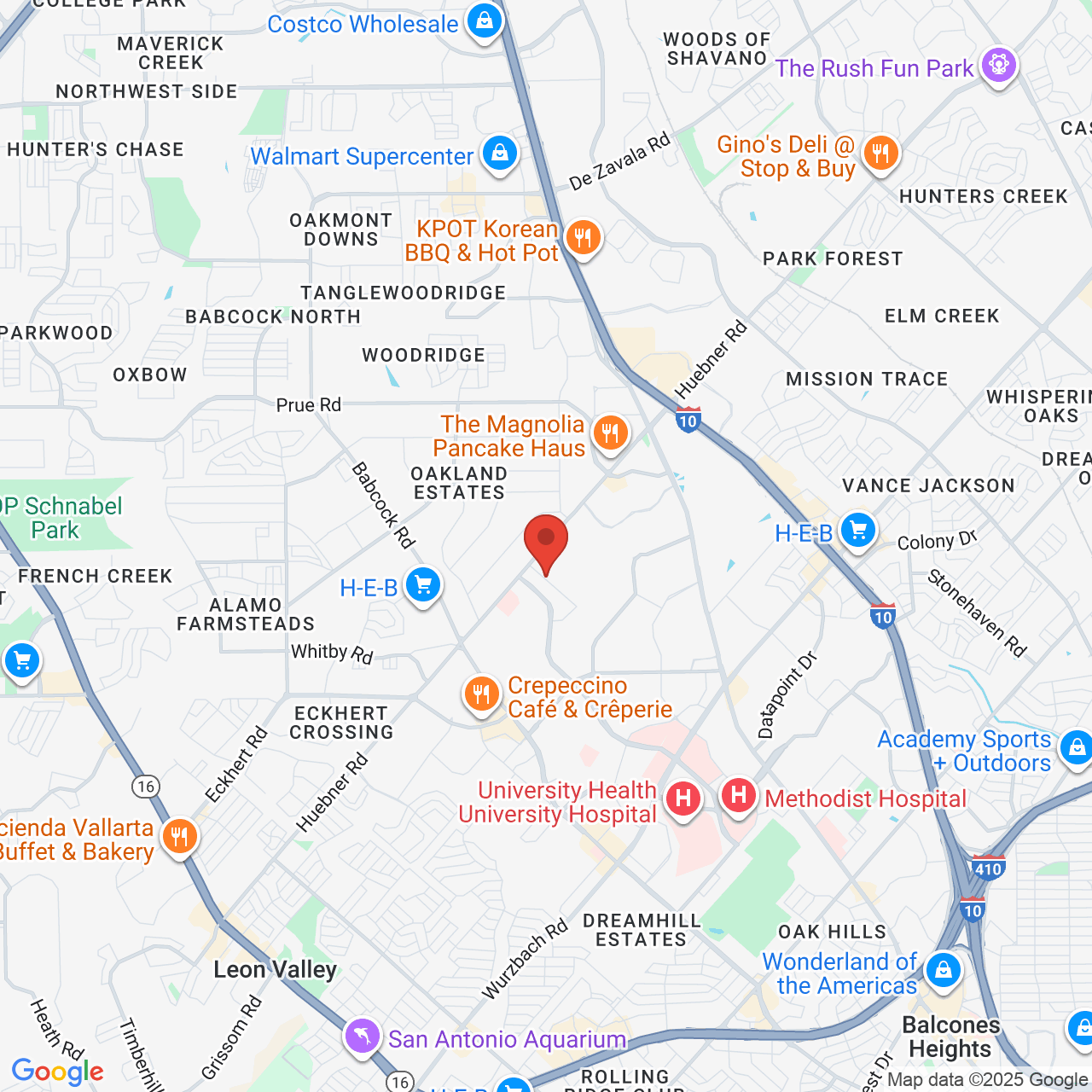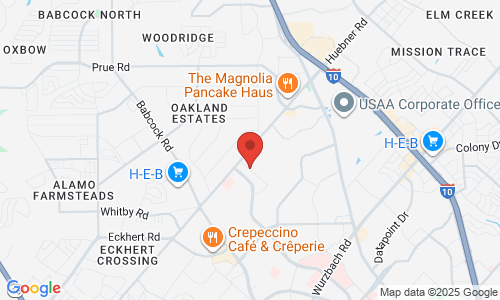Description
Dr. Constance Barone has been a practicing plastic surgeon for more than 25 years. Dr. Barone worked with some of the best surgeons in the country during her education and has brought her knowledge and training to San Antonio. Dr. Barone provides several specialty procedures, including transumbilical breast augmentation and QuickLift® face lifts.
View transcript
Dr. Barone: I've been in San Antonio for 10 years and I actually have been in practice for over 25 years. I actually received my board certification in general surgery at Temple where I actually perform general surgery. After that I did my plastic surgery at N.Y.U. in New York City. I was lucky and fortunate to train with some of the top surgeons in the country. Not only to do micro-vascular surgery but reconstructive surgery in children as well as cosmetic surgery at Manhattan I.N.U. which is the premiere place for cosmetic surgery. I also returned to New York and did a fellowship in cranial facial surgery, of which I created operations in children with pre-mature closure of the skull and I created the operative technique as well as some of the instrumentation for some of that operation.
That operation is done on children all over the world; I continue to do that work today. Once month my husband and I, my husband is the chairman of neurosurgery at the University of Texas, we do patients who are young children. Usually younger than six months of age with premature closure of the skull and we actually treat these patients. I also do cosmetic surgery. I was the chief of plastic surgery at the University of Texas. I am now in private practice. I have built my own practice and cosmetic surgery center starting this November, is when I moved to this new location. It's still located within the medical center which makes it convenient for the patients but this is a beautiful state of the art surgery center, 5000 square feet with all the newest technology and a pre-op and post-op recovery room area.
It is located very close by to another hospital called Foundation Hospital. It's within walking distance which adds to the safety and this surgery center is AAA certified. I was very happy doing general surgery but that was the time when general surgeons did a lot of head and neck surgery. I did open heart transplants, I did head and neck surgery, I did bypass surgery, I felt very bad for the patient because they were disfigured after the surgery. After the big commando operation to move in their jaw line. And I remember stating, "Isn't that sad that we don't reconstruct these patients." I was talking to another fellow surgeon who was in attending and he said, "Connie, why don't you go ahead and go into plastic surgery? That way you'll be able to help the patients and continue with surgery."
So I applied to just a handful of programs, I got into everywhere I applied but I chose N.Y.U. because it was really the top program in the country at the time and it was on the cutting edge of what was new in plastic surgery, including micro-vascular reconstruction, craniofacial in children, as well as aesthetic cosmetic surgery at Manhattan I.N.U. I love seeing the patients post-op and seeing the results. I like seeing the transition and the improvement in the smile on their faces post-op. A happy patient is the most rewarding thing that a surgeon could ask for. This isn't a practice where we do minimalist things, this is a practice where we want to see the results and I'm able to offer them a large array of solutions for their problems. And when they're happy post-op, I'm happy as well.
I have three children; they age from 11 to 18. My husband and I are both extremely busy. On the weekends we do like to do a lot of water sports. We really love spending our weekends with each other.
I think the best thing for the patients to understand about me would be that I truly care about what their outcome is and allowing them to go through a process of achieving the outcome is really a process we take together. It's a walk we take together in order to achieve the end result. That is the most satisfying part of surgery, when you nail what the patient is and they wanted to begin with. And having realistic expectations is important, there is so much on T.V. today that really leads the patient astray in wanting unrealistic expectations. It's really within our power as academic and as informed plastic surgeons to really teach patients what is the reality of plastic surgery. This isn't like putting eyeliner on. This is real surgery with potential complications and patients have to understand that.



































